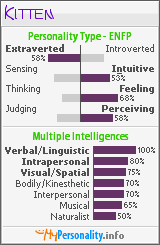
This is a book that I had heard about for a long time before I actually picked it up. I had seen Greg Mortenson on television, in various interviews, talking about his work building schools for girls in the poorest regions of Pakistan and Afghanistan. Friends from church and work had asked me if I had read it yet, and the answer was always no.
Then last year, on my trip to Washington DC, the New York Times booth in the exhibition hall was giving away copies of this book. I had one thrust into my hands, and knew that I no longer had an excuse not to read it.
Yet it sat on my to be read (TBR) pile for months.
Finally, last month, after I finished When in Doubt, Sing, I picked it up and started to read.
You can't help but be moved by this story.
David Oliver Relin tells the story of Greg Mortenson, a mountain climber who earns money for his expeditions by working as an ER nurse. Mortenson had an unconventional childhood; he was the son of African missionaries. His father was a physician who built hospitals in Tanzania. He moved his family back to America when Greg was in his early teens.
Greg's youngest sister, Christa, contracted meningitis as a toddler, and never fully recovered. She suffered from epilepsy throughout her life, and succumbed to a massive seizure on the morning of her 23rd birthday. Greg and Christa were extremely close; he helped her create an independent life for herself. She rode the bus to work, was able to dress herself, and even had a steady stream of boyfriends. He made sure that her seizures did not inhibit her quality of life.
After Christa's death, Mortenson wanted to reach the summit of K2 and place a beaded necklace on the mountain in her memory. In 1993, he set out to climb the second-highest peak in the world--only to barely reach the top. Mortenson had to be rescued from the mountain. He was devastated that he was not able to fulfill his goal and honor his sister's legacy. He didn't know, however, that he would soon do so in a completely unexpected way.
After being rescued, Mortenson ended up in the village of Korphe, where the villagers showed him much hospitality and warmth. He stayed at the home of the village's chief, Haji Ali. One day, as Mortenson was walking through the village, he noticed a group of youngsters attending a class. There was no school for these children, no textbooks, and no proper materials which the teacher could use to help teach her class. Mortenson was moved by this; he felt that the village's children should have a proper school.
Before he left Korphe, Mortenson informed Haji Ali that he would return one day, and promised that he would build a school for the village.
When he returned to the United States, Mortenson wrote over 500 letters seeking donations for his cause. He figured that he needed $20,000 to construct a school for Korphe. Out of all of these letters, only one man donated money: Tom Brokaw, then anchor of the NBC Nightly News, who attended the same college as Mortenson, the University of South Dakota. Eventually, Mortenson found a benefactor in Dr. Jean Hoerni, a Swiss physicist and Silicon Valley pioneer. He donated the money that Mortenson needed to construct the school, and also was instrumental in founding the Central Asia Institute (CAI), an organization committed to help eliminate poverty and build schools in the region.
It turns out that the school in Korphe is the first of many schools to be constructed in central Asia. At the time of this post, CAI has constructed 78 schools and has taken efforts to help reduce poverty in the region, through such donations as medical supplies and scholarships.
CAI has particularly focused on constructing schools for girls, and has done much to help advance the education of women in the region. This is particularly noteworthy, for the role of women in central Asia has not been one of great importance. Men have traditionally been the breadwinners; women have traditionally stayed at home, raised families, and made money by selling food and clothing. Through Mortenson's work, more women have been able to receive an education and set their goals on becoming doctors, teachers, and various other skilled workers.
The book is told, not from Mortenson's point of view, but from Relin's. He tells the story in a third-person narrative, or rather, a very long interview with his subject. This, at times, makes the story seem lengthier than it really is. I thought it slowed down the storytelling. There are also a lot of people to keep straight. Throughout his work in central Asia, Mortenson encounters many politicians, village officials, and village families, and it's easy to lose track of who lives where, who is the head of which village, and who to watch out for. This is the book's weakest point.
In spite of the book's shortcomings, Three Cups of Tea provides a fascinating look into a region that, in recent years, has gained a bigger profile in world politics. Most of the book's events take place during the latter part of the 1990s. Relin often weaves in bits of political occurrances that form a unique backstory for the book's main plot. For example, you'll learn about the concern that the CAI has for an emerging organization--an organization that has come to be known as the Taliban. You'll see the rise of Musharraf and the military, and the beginnings of the US war with Afghanistan.
What touched me most about this book is the gratitude that the villagers of Pakistan and Afghanistan show "Dr. Greg", as Mortenson is known, for his efforts. I don't make many anti-war statements, but if there is a reason for our country to end the wars in central Asia, this is it. One of the chapters in Three Cups of Tea is titled "Our Enemy is Ignorance." It's not the Taliban or Bin Laden who is the enemy, Mortenson argues, but rather, not being aware of the problems plaguing central Asia. The enemy is the lack of education on such matters.
Three Cups of Tea certainly helped educate me.
This book was first published in 2007. Since its publication, the CAI has helped establish teacher-training programs, women's centers, and scholarships, among other projects. You can find out more about Greg Mortenson and the Central Asia Institute at the following websites:
Three Cups of Tea
The Central Asia Institute
Pennies for Peace (a program for students)
The Girl Effect
I encourage you all to take a look and help!
This is the latest installment in my 100+ Reading Challenge, my Dewey Decimal Challenge, my Read Your Own Books Challenge, and my World Citizen Challenge. Click on the buttons in the sidebars for archived lists of my reads!


































5 comments:
I just can't read that book.
Right now I am plowing through The Elegance of the Hedgehog which I believe must be suffering from poor translation. Then I am forcing myself though The Girls of Ames. I am not thrilled about that one either. I am reading them both for work. I think the Girls of Ames is going to be pretty popular. But I am not being complimentary when I say that.
I am glad to read your snippet about Three Cups of Tea since it is one of those books I am asked about constantly.
Hope things are going well!
Thinking of you:)
I have heard interesting things about Three Cups of Tea and might try it one of these days. It's not my usual style of book to read but I'm intrigued. Nice review!
that's quite a review, I'm impressed :o) Thanks for sharing it with us!
I've been wanting to read this but wasn't sure... Aren't they making a movie of it? I don't remember, don't hold me to that. Thanks for writing about it, I'm tempted to get a copy now... :)
Post a Comment